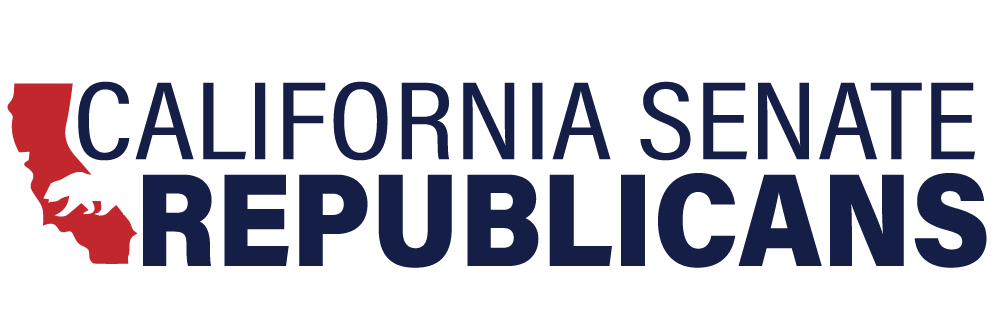Subcommittee #1 (Education) Laird (D-Santa Cruz) Chair, Ochoa Bogh (R-Yucaipa), and Pérez (D-Pasadena)
Subcommittee 1 did not meet this week.
Subcommittee #2 (Resources, Environmental Protection, and Energy) Allen (D-Santa Monica) Chair, Choi (R-Irvine), Blakespear (D-Encinitas), and McNerney (D- Pleasanton)
Senators Call for Improved Public Awareness on Wildfire Risks During Joint Hearing. At a joint hearing of the Senate Natural Resources and Water Committee and Senate Budget Subcommittee No. 2, Senators Kelly Seyarto (R-Murrieta) and Steven Choi (R-Irvine) raised concerns about the limited public awareness of wildfire risks and prevention measures. The hearing focused on the implementation of Assembly Bill 3074 (2022), which requires the establishment of an ember-resistant zone around structures to reduce home loss during wildfires.
“All of the information you provided today is information that we will need to get to the point to where the public understands the gravity of this situation,” said Senator Seyarto, a retired firefighter. Both senators represent districts in high fire hazard severity zones and emphasized the urgent need for expanded public outreach. “Without feasible solutions and strong public education, even the best laws won’t save homes,” said Senator Choi, following testimony from a panel of experts.
According to CAL FIRE, embers are the leading cause of home ignitions during wildfires. Creating a five-foot ember-resistant buffer—known as Zone 0—can significantly improve a home’s chances of survival. Dr. Jack Cohen, a retired U.S. Forest Service fire scientist, explained: “The condition of the home and its immediate surroundings determine the potential for ignition during a wildfire.”
For more information on defensible space and wildfire preparedness, visit: www.fire.ca.gov/dspace
Subcommittee #3 (Health and Human Services) Weber Pierson (D-San Diego) Chair, Grove (R-Bakersfield), Menjivar (D-San Fernando Valley)
Ensuring Quality Services for the Developmentally Disabled. The subcommittee discussed the Department of Developmental Services’ recently-released Master Plan for Developmental Services. The Master Plan is a stakeholder-led, but department-supervised document that includes 167 recommendations to strengthen the accessibility and quality of the services provided to individuals with intellectual and developmental disabilities. The senators questioned the department about its effort to turn this written document into real, tangible service improvements. Although the department supports many of the recommendations in concept, the Governor has proposed no funding to implement any of them. The subcommittee strongly emphasized that implementation of the Master Plan is a priority for the Legislature and will consider adding funding to the 2025 Budget Act in June. Senate Republicans have a long history of advocating improvements to services for individuals with intellectual and developmental disabilities, including comprehensive reforms proposed through 2015 legislation, which legislative Democrats at that time watered down and then blocked.
Subcommittee #4 (State Administration and General Government) Cabaldon (D-Yolo) Chair, Niello (R-Fair Oaks), and Smallwood-Cuevas (D-Los Angeles) Senator Seyarto’s Military Retirement Income Exemption.
The subcommittee discussed the Governor’s budget proposal to exclude veterans’ military retirement and survivor benefit payments, up to $20,000, from state income tax. This proposal is similar to Senate Republican efforts led by Senator Kelly Seyarto (SB 1, 2025) to provide financial relief to the brave Californians who served our country. California is currently the only state that fully taxes military retirement income, which fails to recognize veterans’ service and creates a competitive disadvantage in retaining skilled veterans who often transition into second careers in industries such as aerospace, defense, and technology. Senator Roger Niello (R-Fair Oaks) stated the proposal is like a “nose under the tent” for improving conditions for veterans, and, while the Governor’s proposal would not go as far as Senator Seyarto’s legislation, the proposal is a good first step in providing both financial and economic benefits to veterans and the state.
Subcommittee #5 (Corrections, Public Safety, Judiciary, Labor, and Transportation) Richardson (D- San Pedro) Chair, Seyarto (R-Murrieta), Wahab (D-Hayward), and Durazo (D-Los Angeles)
Approaching Public Safety Staffing Cliff. Among other topics, the subcommittee discussed the struggle facing the California Highway Patrol (CHP) as it seeks to recruit and retain peace officers. Approximately 1,000 CHP officers retired over the past three years, 1,000 more are currently eligible to retire, and over the next three years, another 1,000 will become eligible, amounting to nearly 40 percent of CHP’s sworn staff retiring or eligible to retire in a six-year period. Senator Kelly Seyarto (R-Murrieta) pointed out that the issue is not unique to CHP. Many police and fire service organizations are facing similar challenges. As baby boomers begin retiring in greater numbers, and with many first responders eligible to retire at age 50, the public safety workforce is shrinking as quickly as new staff can be hired. The problem is likely to accelerate in the near future. Policymakers have a duty to recognize the problem and develop solutions to maintain public safety.
